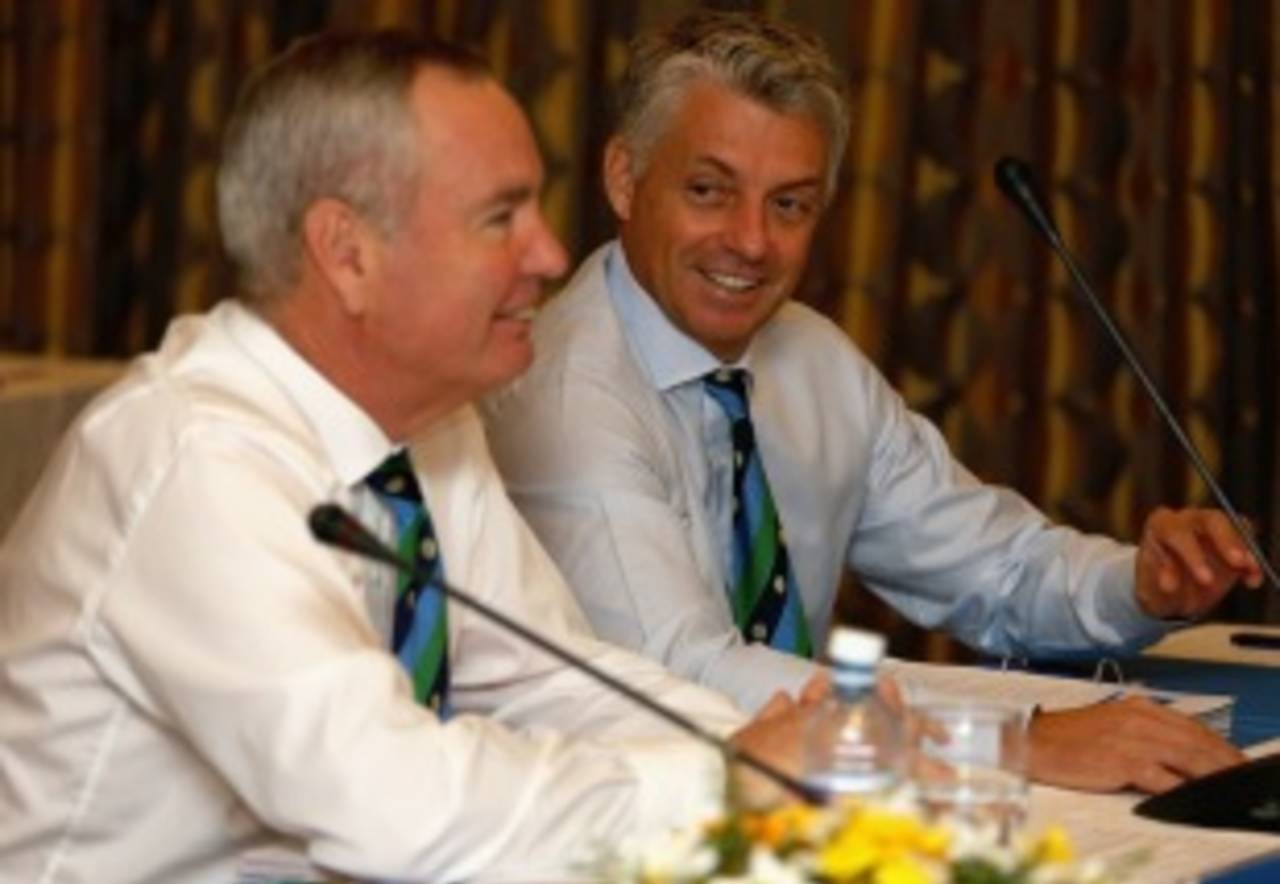Who disciplines the administrators?
Just like players, they need to be pulled up for errors in judgement
Ian Chappell
16-Jun-2013

Not having spoken out while India pushed its own agenda in world cricket makes the other administrators complicit in the current chaos • ICC/Getty
Thanks to some commanding performances, India have firmly entrenched themselves as favourites to win the Champions Trophy. While the seam bowling has been a pleasant surprise, it's India's powerful batting line-up that has made them the envy of every other nation. That India could regenerate so quickly and successfully a batting line-up that was in danger of being decimated by the regular loss of top-class players, is a tribute to their production line.
Where India are currently embarrassed with run-scoring riches, other strong teams, particularly Australia, and possibly South Africa down the track, are in danger of being reduced to the classification of batting poor. India's remarkable regeneration act has also succeeded in invalidating Australian excuses for their current batting woes. Those arguments range from the sudden departure of senior players to being the result of playing too much T20 cricket.
The latter reason is exposed as dubious because India is the home of the IPL, the richest and most concentrated T20 competition in the cricket world. But therein lies a potential conflict if India do experience the elation of winning the Champions Trophy. Will the tide of euphoria in the country sweep aside the IPL corruption scandal or will it mean the rampant fixing problems are attacked with renewed vigour?
Before coming to a conclusion, it's instructive to examine the incongruities currently in play regarding discipline in cricket. There has been a spate of strong punishment meted out to players who have transgressed either on or off the field. These include New Zealand's Jesse Ryder and Australia's David Warner being suspended for drink-related incidents, and West Indies wicketkeeper Denesh Ramdin for poor sportsmanship on the field.
I have no problem with strong punishment being administered to players who exhibit questionable judgement; on the contrary, it's crucial if these problems are to be reduced. However, I do take issue with the inequities in the approach to disciplining offending players and administrators. If the administrators - who generally hand out the punishment - were subjected to the same standards as players when it comes to poor judgement and misbehaviour, then maybe some of the off-field incompetence could be eradicated. In addition to multiple misjudgements, many administrators seem to totally disregard conflict of interest as a concept. And through the IPL scandal, it's also obvious that corruption is an issue among officials.
While the IPL was a visionary concept, its original implementation was flawed. The blueprint for the league could easily have been lifted from a bestselling novel with a central theme of corruption. It was a script combining immense sums of money, the glitz of Bollywood, after-match parties involving players, and on-field performances that were diminished by upgrading the importance of off-field activities. This subjected T20 cricket to the danger of becoming entertainment in the realm of professional wrestling rather than sport.
The fact that no one challenged this concept is symptomatic of the myopic vision in cricket administration worldwide. Their failure to apply a zero-tolerance and draconian punishment regime when fixing first raised its ugly head was a major case of misjudgement. And allowing India to rule with dictatorial zeal while the rest just stood by makes the other countries accomplices in the chaos.
Both players and officials need to reacquaint themselves with the notion of the game's integrity. It's unreasonable to expect players to behave impeccably while they are being exposed to some officials acting corruptly at worst and with a lack of common sense at best. If the administrators' sole priority appears to be "a strong bottom line", it's a bit rich to then accuse cricketers of being "self-centred".
History suggests the investigation into the IPL corruption scandal is most likely to be swept away on a tidal wave of euphoria if India win the Champions Trophy. By reversing that trend the officials will be displaying the courage and foresight the game has been so lacking. It will also be a much-needed boost for the integrity of cricket.
Former Australia captain Ian Chappell is now a cricket commentator for Channel 9, and a columnist